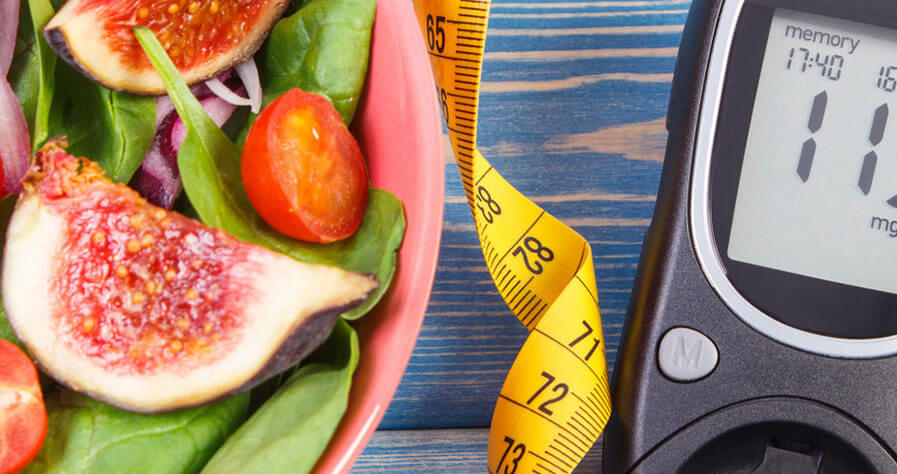What Is Type 2 Diabetes?

Type 2 diabetes is a chronic medical condition in which the body doesn’t produce enough insulin to process blood sugar (glucose) properly, or it resists the effects of insulin. Either way, abnormal blood sugar levels lead to problems in the body’s circulatory, nervous, and immune systems.
Type 2 diabetes is the most common form of the disease. At least one in three people will develop type 2 diabetes in their lifetime, and one out of four don’t know they have it. Consequently, it’s essential to understand what type 2 diabetes is and be able to identify its symptoms.
Type 2 Diabetes Symptoms
Type 2 diabetes causes symptoms throughout the body. They include:
- Excessive thirst
- Increased urination
- Weight loss
- Tingling, pain, or numbness in the hands and feet
- Increased hunger
- Itchy skin
- Sores that don’t heal
- Frequent yeast infections
- Fatigue and irritability
- Blurry vision
Untreated type 2 diabetes can lead to vision loss, kidney disease, heart attack, stroke, numbness in the extremities, and other serious health problems.
If you experience any of the symptoms above, you should contact your doctor. The sooner they determine that you have type 2 diabetes and prescribe treatment, the fewer complications you’ll experience.
What’s the Difference Between Type 1 and Type 2 Diabetes?
Both type 1 and type 2 diabetes have to do with how your body manages blood sugar. The difference is that type 1 diabetes is a genetic condition typically diagnosed early in life. On the other hand, type 2 diabetes is related to lifestyle factors and generally is identified in adults.
How Is Type 2 Diabetes Diagnosed?
Doctors typically diagnose type 2 diabetes based on a glycated hemoglobin test. Often referred to as an A1C test, it determines your blood sugar level over the past two to three months.
The results are categorized as follows:
- A1C below 5.7% is normal
- A1C of 5.7% to 6.4% is considered prediabetes
- A1C of 6.5% or higher on two separate tests indicates diabetes
There are other tests your doctor can order if your A1C figure can’t be determined. They include a random blood sugar test, fasting blood sugar test, or oral glucose tolerance test.
It’s important to be screened for diabetes if you or your child meet any of these criteria:
- You are over 35.
- You are younger than 35 but overweight or obese and have other risk factors.
- You have had gestational diabetes.
- You have been diagnosed with prediabetes.
- You are a smoker.
- Your child is overweight or obese and has a family history of type 2 diabetes or other risk factors.
Type 2 Diabetes Treatment
In many cases, people can control their type 2 diabetes by making lifestyle changes, including:
- Eating a healthy diet with plenty of fruits and vegetables, smaller portions, fewer refined grains and starchy vegetables, and less sugar
- Exercising regularly, including aerobic activities (walking, running, biking, swimming, etc.) and resistance activities (weightlifting, yoga, etc.)
- Using the activities above to reach and maintain a healthy weight
- Quitting smoking
If lifestyle changes aren’t sufficient to address your type 2 diabetes, your doctor may prescribe diabetes medication or insulin therapy and blood sugar monitoring.
Tips for Preventing Type 2 Diabetes
Type 2 diabetes is largely preventable. About nine cases in 10 could be avoided by taking several simple steps:
- Eat healthy foods. Choose foods lower in fat and calories and higher in fiber. Focus on fruits, vegetables and whole grains. Limit red meat and avoid processed meat; choose poultry or fish instead. Skip the sugary drinks. Choose water, coffee or tea.
- Exercise every day. Inactivity promotes type 2 diabetes. Aim for 30 minutes of moderate physical activity every day. Find a friend to walk with you or join an exercise class to help you keep going. If you can’t fit in a long workout, spread 10-minute or longer sessions throughout your day.
- Watch your weight. Excess weight is the single most significant cause of type 2 diabetes. If you’re overweight, lose a few pounds (a 7-10 percent reduction in your body weight can cut your chances of developing type 2 diabetes in half. A BMI (Body Mass Index) Calculator can help you determine if you need to lose weight and how much weight you need to lose.
- Chuck the cigarettes. If you smoke, try to quit. Smokers are roughly 50 percent more likely to develop diabetes than nonsmokers, and heavy smokers have an even higher risk.
Talk with Your Baptist Health Physician About Type 2 Diabetes
Your Baptist Health doctor can determine if you have type 2 diabetes and prescribe treatment as appropriate. They may also refer you to an endocrinologist. If you don’t have a primary care physician, you can find one near you using our online provider directory.
Next Steps and Useful Resources
What is the Difference Between Type 1 and Type 2 Diabetes?
10 Nutrition Tips for Someone With Diabetes
Can Diabetes Be Reversed?



